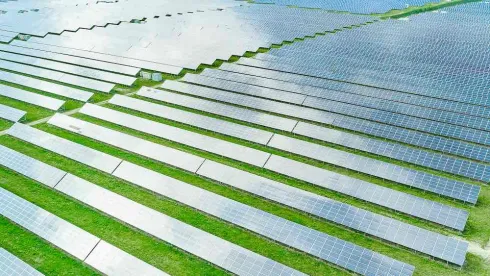On May 16, 2023, President Joseph Biden vetoed the Congressional Review Act (CRA) resolution that would have nullified the temporary moratorium on the collection of antidumping and countervailing (AD/CVD) duties on imports of certain solar cells and modules from Cambodia, Malaysia, Thailand, and Vietnam. See House Joint Resolution (H.J. Res.) 39.
Background
Under the Congressional Review Act, Congress may pass a resolution of disapproval of an agency action. The resolution in this case would have nullified the temporary waiver issued by President Biden via Presidential proclamation in June 2022. If the president vetoes the resolution, it returns to Congress, which may override the veto by a two-thirds majority of both the House and Senate.
After this veto, the waiver on AD/CVD tariffs on solar products remains in place. It is set to expire on June 6, 2024, or when the emergency is deemed terminated, whichever comes first. We suspect this won’t be the last we see of the CRA resolution to challenge the moratorium.
Timeline
-
Effective on November 15, 2022, the Department of Commerce implemented a temporary waiver of certain solar import duties pursuant to President Biden’s Proclamation 10414 (see our solar Proclamation blog and our solar Commerce waiver blog). The Proclamation had declared an emergency with respect to the U.S. energy market and directed Commerce to pause the imposition of potential AD/CVD duties stemming from circumvention investigations for the subject imports.
-
Originally, the solar resolution under the CRA was introduced to the House of Representatives (by Dan Kildee (D-MI-8) and Bill Posey (R-FL-8)) on January 26, 2023 with little support.
-
Then we saw a similar resolution introduced to the Senate in February 2023.
-
On March 7, 2023, Rep. Posey introduced H.J. Res 39 in the House of Representatives. The earlier iterations of the solar resolution can be found here (House) and here (Senate).
-
In response, the White House declared on April 24, 2023 that President Biden would veto the resolution if it would be passed by Congress.
-
On April 28, 2023, the House passed the resolution in a 221-202 vote, with some bipartisan support.
-
On May 3, 2023, the Senate voted 56-41 in favor of the resolution. Several Senate Democrats joined Republicans in passing the resolution.
-
The resolution was presented to President Biden on May 9, 2023, and he issued his veto seven days later, on May 16, 2023.
Takeaways
-
Possibility of Overturning President Biden’s Veto: While the President has vetoed H.J. Res. 39, Congress could override the veto with a two-thirds supermajority vote in both houses. The possibility of a supermajority, while still not likely in today’s Congress, has increased since the initiation of the CRA to challenge the solar moratorium. However, at this time we continue to expect Congress not to be able to reach the supermajority needed to end the moratorium at any time soon.
-
Solar Makes Political Bedfellows: The bipartisan passage of H.J. Res. 39 and the subsequent veto by President Biden reveal the competing priorities between U.S. efforts to move to renewable energy sources and the desire to protect domestic solar cell industries from imports. President Biden has issued a whole-of-government approach to tackle climate change while other Democratic senators in this instance have sided with domestic manufacturers. Depending on these competing priorities, we can expect to see more cross-aisle voting.





 />i
/>i

